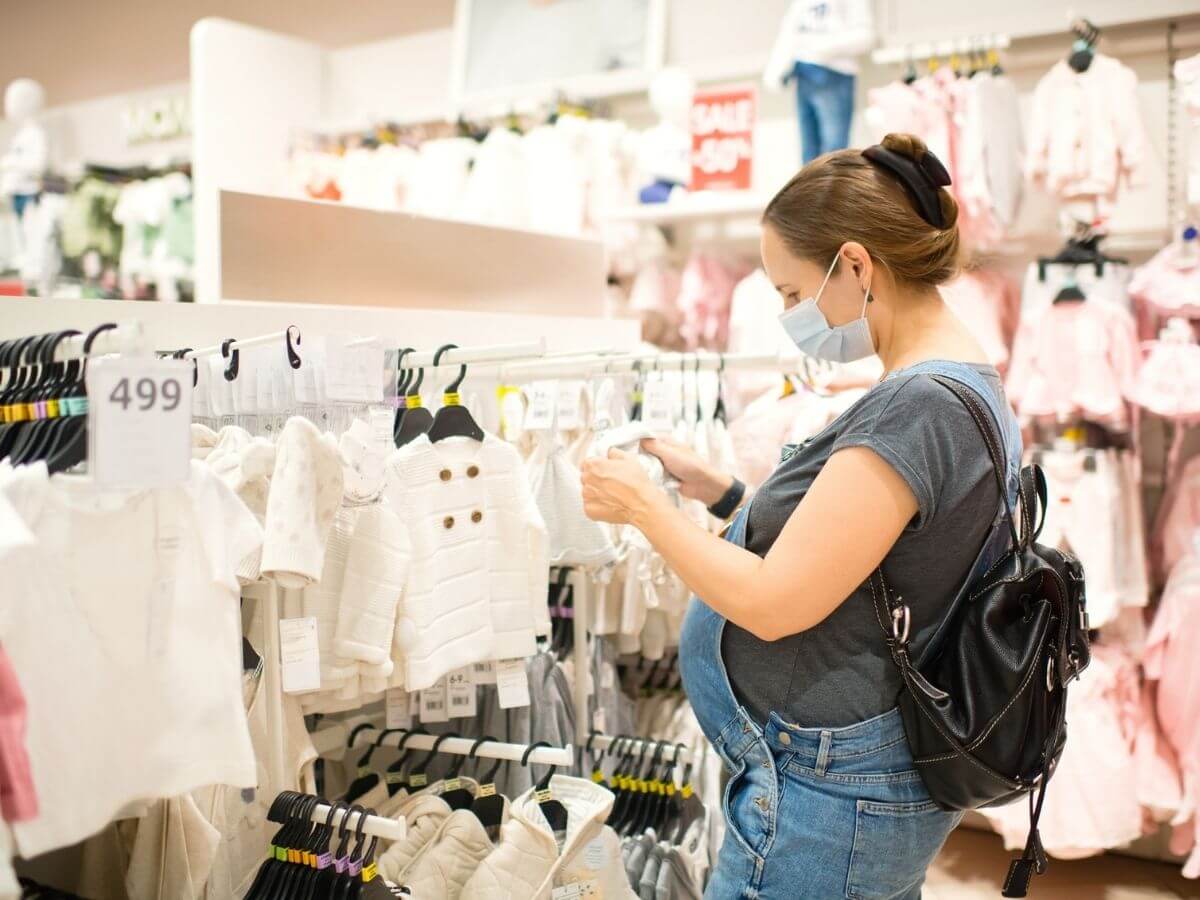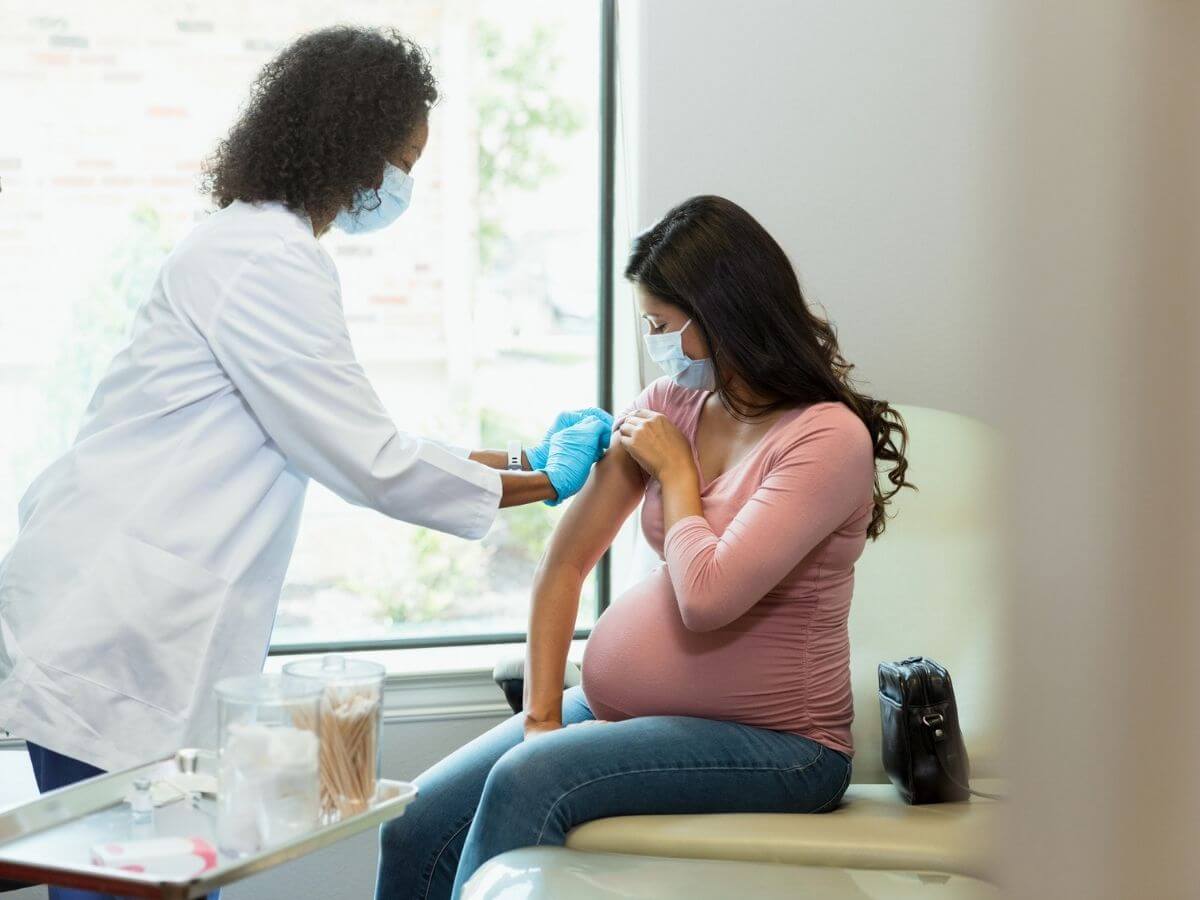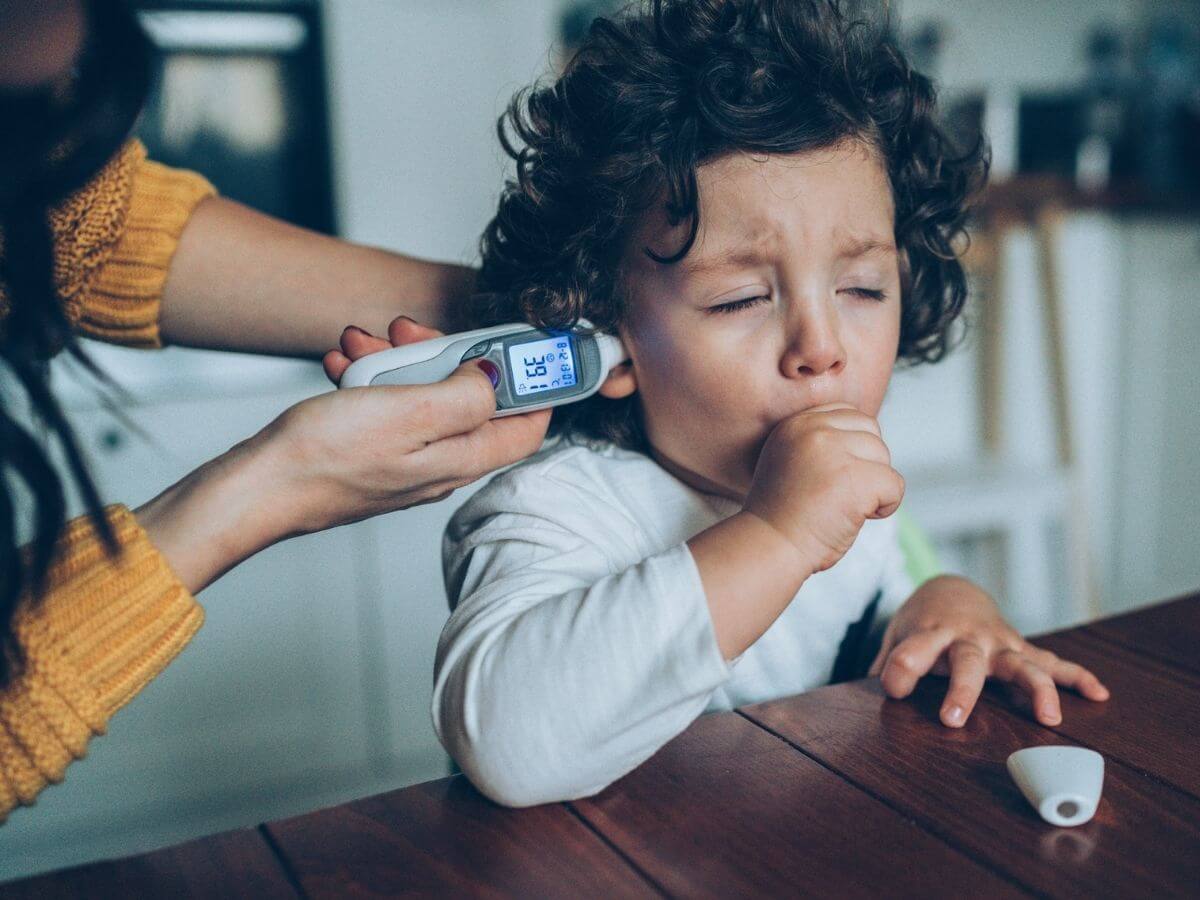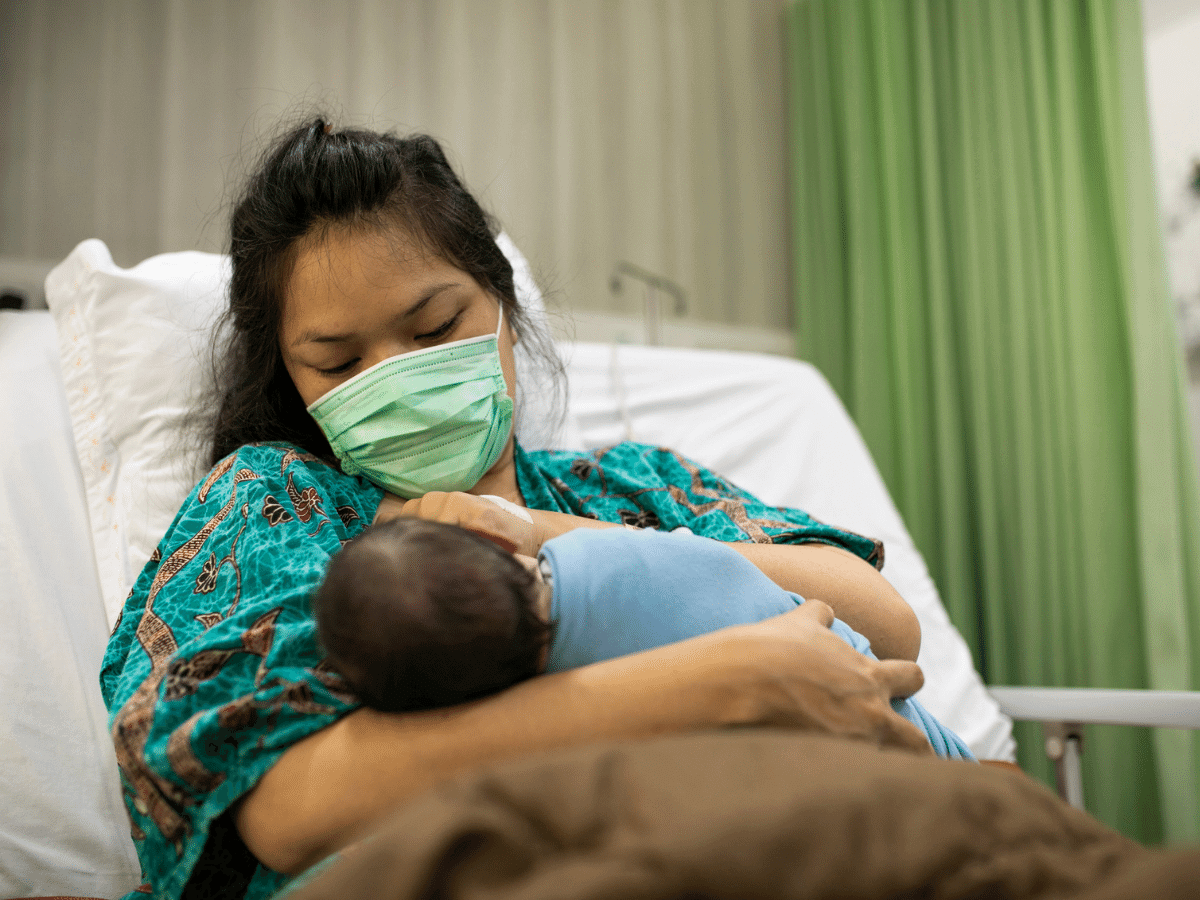Is Getting COVID-19 While Pregnant Harmful to Baby?

Medically reviewed by Baptist Health
Being pregnant is exciting as you look forward to the birth of your baby. But it’s also a scary time, as you worry about the various health issues that can affect your unborn child.
That’s especially true in the age of COVID-19, given how contagious the virus is and the risk of developing serious illness if you’re not vaccinated. Below is important information about COVID-19 for anyone who’s pregnant or considering becoming pregnant.
What You Should Know About COVID-19
COVID-19 is a respiratory disease with symptoms that generally appear in 2-14 days following infection with the virus. Most often, symptoms develop four days after you’re infected. They can include:
- Fatigue
- Shortness of breath
- Fever
- Cough
- Chills
- Loss of sense of taste or smell
- Headache
- Sore throat
- Muscle aches
Other illnesses can cause many of these symptoms, as well. It’s important to contact your doctor if you develop any of them.
Are Pregnant Women More Likely to Get Seriously Ill From COVID-19?
According to the Centers for Disease Control and Prevention (CDC), being pregnant makes you more likely to get seriously ill if you contract COVID-19 and to require hospitalization, treatment in an intensive care unit, and the assistance of a ventilator to breathe. And people who develop serious cases of COVID-19 can die from it.
Other factors can increase the risk of serious illness from COVID-19 for people who are pregnant. These include being over age 25, having certain underlying medical conditions, living, or working in areas with low vaccination rates and/or a high number of COVID-19 cases, spending time in places where it’s difficult or impossible to maintain adequate distance from others, and being part of some racial and ethnic minority groups.
Contracting COVID-19 While Pregnant Can Affect Your Unborn Baby
People who contract COVID-19 while pregnant are more likely to have a preterm birth (meaning their baby is born earlier than 37 weeks) or a stillbirth (meaning the death of a baby before or during delivery). Other pregnancy complications may be more likely in people who have COVID-19 during pregnancy than those who don’t, as well.
However, it’s important not to panic if you’re pregnant and test positive for COVID-19. There are treatments that doctors can use to address COVID-19 in people who are pregnant.
As for whether you can pass COVID-19 to your unborn baby, the evidence available suggests that it’s unlikely. But more research is needed. The same is true about passing the virus to your baby through breastfeeding. Based on a few studies, it doesn’t appear that you can. However, researchers continue to learn more about COVID-19 and breastfeeding.
Can You Get a COVID-19 Vaccine While Pregnant?
The CDC recommends vaccination for people who are pregnant, attempting to get pregnant, may attempt to get pregnant in the future or are breastfeeding. They also recommend getting a booster shot following the guidelines in place at the time that you’re considering a booster. The guidelines continue to evolve based on new knowledge of the virus and any variants that develop.
Protect Yourself and Your Baby
The risk to you and your baby of getting COVID-19 while you’re pregnant is real. The good news is that by getting vaccinated and following best practices like avoiding crowds, wearing a mask when appropriate, and washing your hands frequently, you can greatly reduce that risk and protect yourself and your baby.
Make a COVID-19 vaccine appointment or learn more about maternity care at Baptist Health. If you’re looking for a healthcare provider, you can find a provider near you using our online provider directory.
Next Steps and Useful Resources
Find a Provider
Is It Safe to Get the COVID-19 Vaccine If You’re Pregnant or Breastfeeding?
How to Increase the Chances of Getting Pregnant
What Is Omicron? Understanding the Latest COVID-19 Variant.



